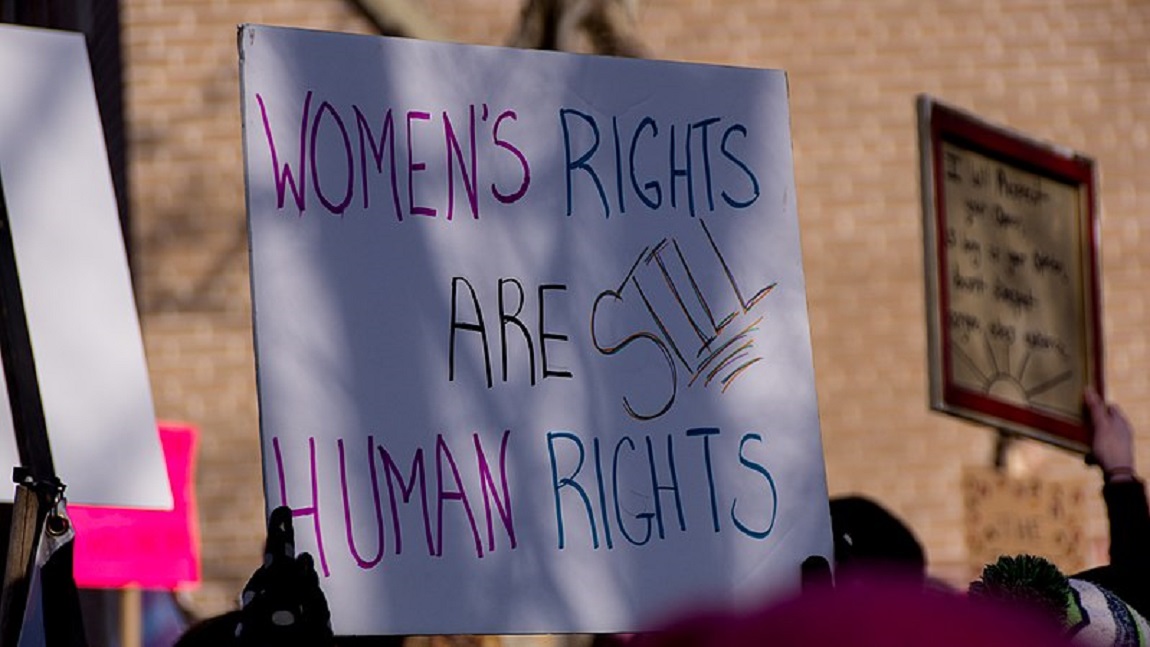On Human Rights Day, global civil society alliance CIVICUS outlines five human rights trends in South Africa that look set to continue in 2021.
Read more: Attacks on citizen rights in SA: Five trends and countrywide threats
1. Rise in student activism
Earlier in March students from Wits University streamed onto the streets to protest against fees. One innocent bystander was caught in the crossfire as police used excessive force to scatter protesters, firing rubber bullets and teargas.
Read more: Mthokozisi Ntumba who was killed by police at Wits protest was left alone to die
The students’ activism mirrors a growing trend in South Africa and around the world – more and more young people, and young women in particular, are taking a stand, fighting against inequality and injustice.
Our latest State of Civil Society report shows that youth movements play a huge part in shoving important issues – like the climate crisis – into the headlines. For example, Fridays for the Future, an international youth-led movement holding weekly climate strikes, mobilised students across 125 countries; in South Africa a growing number of young climate activists are taking to the streets to cast a spotlight on this issue.Young climate activists gather for a Fridays for the Future march in Berlin. (Fridays for the Future Berlin)
2. Civil society steps up during covid
Our report, ‘Solidarity in the Time of COVID-19’, shows how civil society organisations across the globe responded nimbly and effectively to the pandemic, providing frontline help and defending the rights of people across the world, often filling the gaps when states were slow to respond.
In South Africa, civil society has played a crucial role during COVID-19. The C-19 People’s Coalition is the country’s largest civil society group responding to the crisis. Made up of over 200 organisations including trade unions, civil society groups of various kinds, healthcare workers and frontline responders, the coalition is working to help the most vulnerable people in society as they struggle through the pandemic.
Other examples of civil society stepping up in the past year include the Ikamva Labantu organisation in Cape Town, which mobilised to provide food and hygiene parcels to over 1,000 older people, and the Ndlovu Youth Choir, which used music to dispel myths and misunderstandings about COVID-19.Ndlovu Youth Choir entertains President Ramaphosa and guests. (Credit: GCIS)
3. Protests on the rise
Research by the CIVICUS Monitor, our online platform that documents restrictions to democratic freedoms across the globe, shows that across the world, people have spilled onto the streets in great numbers in the last year to demand alternatives to the dire economic situation resulting from extended lockdowns, to express their frustration with covid confinement, and to insist that Black Lives Matter – and when they have done so they have often been met with excessive force and detention.
In May, people near the Seraleng mining community in Rustenburg protested about the dire socioeconomic situation resulting from the pandemic. While last month workers gathered in central Johannesburg before the national budget speech, demanding increased social spending and more protections for their rights.Graph: CIVICUS Monitor
Worldwide, there has been a surge in gender based violence during the pandemic, as women remain locked indoors with perpetrators. Protests against gender-based violence have erupted across South Africa in recent years and are likely to continue as women take collective action to fight for more protection.
4. Targeting of environmental activists  #End Coal protest: over a hundred South African activists gathered in Gandhi Square, Johannesburg, to call on the government to unplug coal power and switch on renewable energy instead. (Credit: Greenpeace Africa)
#End Coal protest: over a hundred South African activists gathered in Gandhi Square, Johannesburg, to call on the government to unplug coal power and switch on renewable energy instead. (Credit: Greenpeace Africa)
South Africa is the world’s seventh largest coal producer and environmental activists face an increase in threats and intimidation as they protect their ancestral lands from mining developments and fight for clean air and water.
Women have been at the forefront of mining protests and in October last year environmental activist Fikile Ntshangase was shot dead in her home. 65-year old Fikile was involved in a legal dispute over the extension of an opencast mine near Somkhele, close to Hluhluwe–Imfolozi park, the oldest nature reserve in Africa.
Fikile’s death mirrors a worldwide trend: a growing number of people are being killed for defending their land and ancestral homes and resisting harmful new projects – more than 200 environmental activists died in 2019.
5. Rising levels of xenophobia
Repeated lockdowns and restrictions on public gatherings have taken a toll on the economy. It is estimated that around 25 million people will lose their jobs during covid.
Against this backdrop of unemployment and poverty, CIVICUS research shows that at risk and excluded groups have been adversely affected. In many countries migrants and other minority groups have been smeared as sources of infection, while in South Africa, frustrations about economic hardships have been taken out on migrants and xenophobic attacks are on the rise.
Research shows that negative stereotypes about migrants and refugees are common across South Africa and earlier in March two non-nationals were injured in Durban after shops were burnt and attacked. There are also fears that online campaigns such as #PutSouthAfricaFirst are fuelling discrimination and violence against foreign nationals.
By Mawethu Nkosana, LGBTQI+ Advocacy and Campaigns Lead at CIVICUS & Safia Khan, Innovation and Communications Officer at CIVICUS. Based in Johannesburg, CIVICUS is a global civil society alliance with over 10,000 members worldwide dedicated to strengthening civil society and citizen action.
The views expressed in this article are the author’s own and do not necessarily reflect The Daily Vox’s editorial policy.









